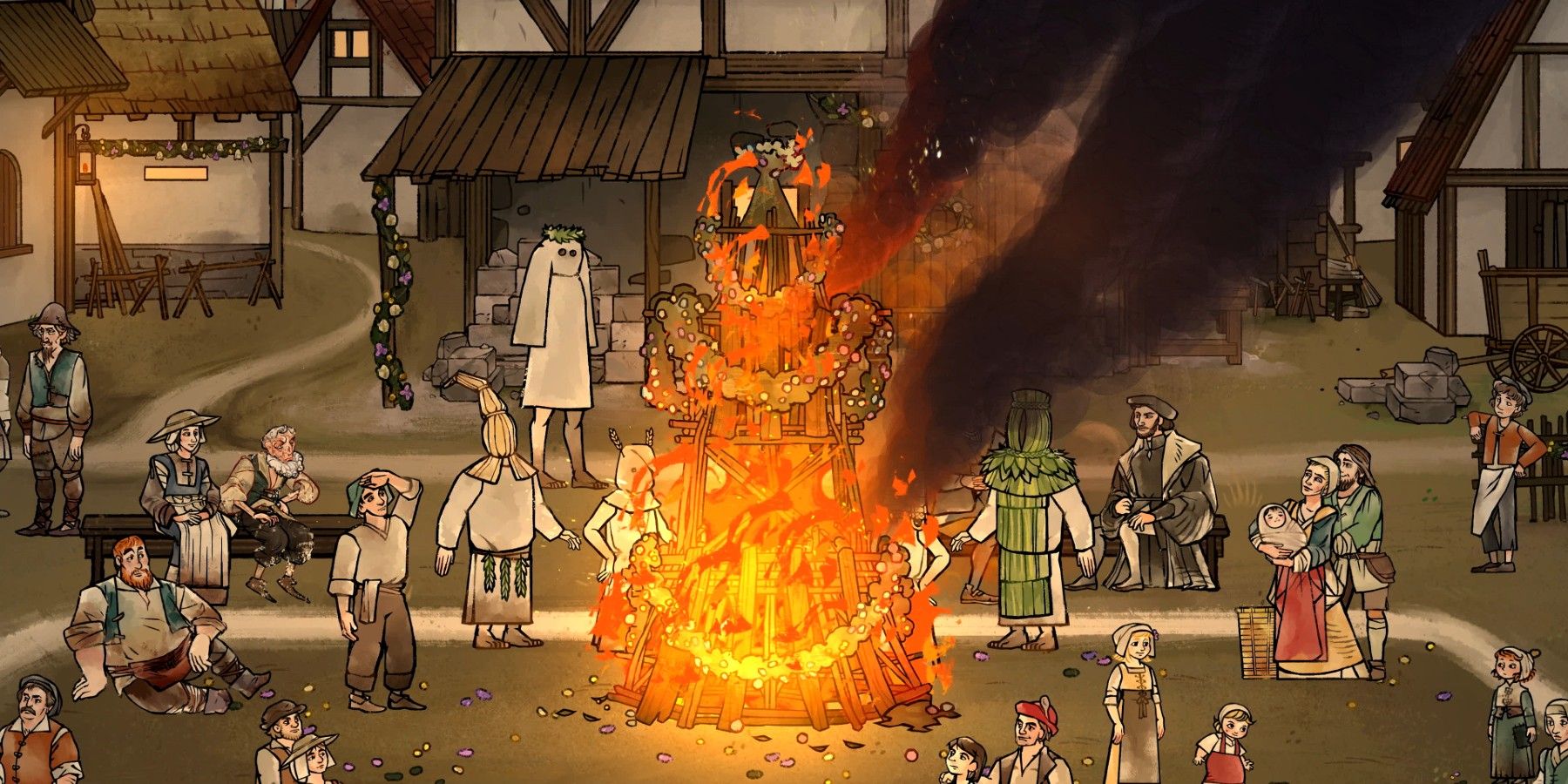Obsidian Entertainment has a near-perfect track record when it comes to its back catalog of video games, with titles like Star Wars: Knights of the Old Republic 2, Fallout: New Vegas, and The Outer Worlds all showing the immense talent of the studio. While Obsidian Entertainment tends to create large-scale adventures, usually with plenty of RPG elements built-in, its upcoming release, Pentiment, is a little different, instead opting to be a smaller-scale murder mystery game set in 16th century Bavaria.
Named after its wonderfully unique Pentimento art style, Pentiment looks to be one of Obsidian's most stylish titles, and its story may just end up being the developer's most grounded and complex. But by far one of the most unique elements of Pentiment is its historical setting. Taking place over the course of a number of years in the 16th century, Pentiment seems to include direct references to real-world events of the time, some of which may end up greatly influencing the game's plot.
Pentiment's Historical Setting
Likely beginning right at the start of the 16th century, in the early 1510s, Pentiment puts players in the leather shoes of Andreas Maler, an artist that has recently taken up residence in a quaint little fictional Bavarian town named Tassing. Soon after arriving, however, Andreas is thrust into the middle of a murder mystery plot, and over the course of a few decades, he'll need to solve the murder, presumably making a few vital moral choices along the way.
With Pentiment probably beginning in the early 1500s, it seems likely that the Protestant Reformation will play at least a minor role in the game's story, especially as one of the game's featured locations is the fictional Kiersau Abbey. The Protestant Reformation essentially refers to the sudden spread of Protestantism in Europe following Martin Luther's controversial doctrines that contradicted much of the Catholic Church's teachings. This Reformation led to a split in Europe, with some countries remaining Catholic, some choosing to adopt Protestantism, and some having a mix of both. For areas that had both, tensions were always very high. This religious division could potentially have something to do with Pentiment's murder mystery plot.
Being set in Bavaria, Pentiment may also encompass the German Peasant's War, a failed revolution that lasted between 1524 and 1525. A revolt that spread across Europe, involving most German-speaking areas, the German Peasant's War saw farmers and other lower-class workers try to oust the aristocracy, who they believed had too much wealth. The German Peasant's War is also often associated with Luther's Protestant Reformation, as it's believed to have caused more animosity between the classes, and told the lower-class workers that equality should be a given right worth fighting for. Interestingly though, Luther actually condemned the revolutionaries and their violent actions, and claimed that his doctrines were not intended to cite any rebellions. The German Peasant's War would come to an end in 1525, with 100,000-300,000 lower-class workers being killed by the aristocracy.
With Pentiment taking place over the course of 25 years, it could be possible that players will get to see the beginning of the Scientific Revolution. Generally considered to have begun in 1543 with Nicolaus Copernicus' "On the Revolutions of the Heavenly Spheres," the Scientific Revolution sees a new wave of thinkers use contemporary methods and thinking to rationalize the Earth's and star's movements, disproving the theological ideas that had dominated the world since the days of Plato and Aristotle. A lot happened in Europe in the early 16th century, and Pentiment might just explore some of the century's most pivotal events.
Pentiment releases November 15 for PC, Xbox One, and Xbox Series X/S.


